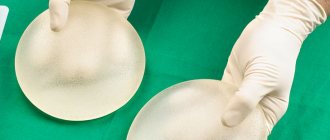There is a common belief among young mothers that in the first months after childbirth, while a woman is breastfeeding and menstruation has not yet returned, it is impossible to get pregnant. In general, moms are right. However, in order for pregnancy to definitely not occur, four conditions must be met .
- A woman should breastfeed her baby only without artificial supplementation.
- The baby should breastfeed every 3 hours during the day and once at night, and the interval between night feedings should not exceed 6 hours. The more often feedings occur, the more effective the method is.
- Menstruation has not yet appeared.
- No more than 6 months have passed since the birth.
If at least one of these conditions is not met, completely unexpectedly for herself, the woman may again find herself “in a position.” And there is little good here. A new pregnancy will prevent the baby from breastfeeding. Too short an interval between births can lead to a complicated pregnancy and the birth of a premature baby. According to doctors, the minimum interval between births is two years, and the optimal interval is from two and a half to three and a half years.
Sex and contraception after childbirth
Everyone knows that it is advisable to begin sexual activity after childbirth no earlier than 4-6 weeks. However, many married couples begin having sex almost immediately after the birth of the child. In this case, you need to be especially careful: after all, a new pregnancy may occur before the first menstruation appears.
Without waiting for trouble, start using protection immediately, from the very first sexual intercourse. When choosing contraceptives, it is necessary to take into account that the woman is now a nursing mother. Contraception should not affect the quality and quantity of breast milk.
Intrauterine device
The most suitable method of protection against pregnancy is an intrauterine device (IUD). It works effectively (90% reliability) and does not affect milk production in any way. In case of uncomplicated childbirth and no contraindications, the IUD can be inserted as early as 6 weeks after birth.
Like others, this method has its drawbacks. The spiral cannot be installed in case of inflammatory diseases of the genital organs and in case of heavy and painful periods.
You won’t be able to install and remove the IUD yourself; entrust this difficult task to an experienced gynecologist.
Natural ways
The choice of method that can be recommended to a woman depends on what type of feeding the baby is on, and whether there are contraindications for a particular method of contraception. Natural protection completely eliminates negative factors. Its effectiveness is low and requires certain rules to be followed.
Abstinence
In the first six weeks after childbirth, doctors recommend completely excluding sexual activity. Why you should give it up:
- Only by the end of the second month the uterus is completely restored and cleansed.
- The organ has an increased sensitivity to infection.
- Penetration into the injured perineum brings pain.
With difficult births, cesarean sections, ruptures and incisions, the period it takes for the organ to fully adapt doubles.
Often, young mothers themselves do not want to resume sexual activity immediately after giving birth. They temporarily do not need it: priorities have changed, complexes have appeared due to a changed body, depression and chronic fatigue.
Complete abstinence during this period provides 100% contraception and allows the mother to recover, does not affect lactation processes. This method is used as an intermediate method, and in the future it is not suitable for married couples.
Lactational amenorrhea
Breastfeeding blocks the synthesis of the hormone estrogen, which stimulates ovulation, and increases prolactin levels.
This means that if the egg does not mature, then conception is impossible.
But in order for this method of protection to work, certain conditions are important:
- The natural feeding regime should be free - at the baby’s first request.
- The breaks between breastfeeding are no more than 4 hours during the day and six at night.
The method is suitable for the first six months, before the menstrual cycle resumes.
Pros of lactational amenorrhea:
- No negative impact on the health of mother and baby is excluded.
- No contraindications.
Minuses:
- Will not protect against infection and sexually transmitted infections.
- If the intervals between feedings are more than 4 hours, supplementary feeding is introduced to the baby, he is 4 months old, introduce other contraceptives.
If a woman begins to experience bleeding, of any duration and intensity, this indicates that reproductive function has been restored.
Calendar methods

They are also considered natural contraceptives for women. Their essence is to periodically, on certain calculated days on which you can conceive, to abstain from sexual intercourse. Contraception after childbirth using the calendar method is used only when the menstrual cycle is completely restored.
How to calculate “dangerous” days:
- With an established cycle, ovulation occurs in the middle. If 28 days pass from the first day of one period to the first day of the next, the middle of the cycle (ovulation) occurs on the 14th day. In this case, it is better to abstain from sexual intercourse for 5 days before and the same number after or use additional methods.
- By rectal temperature in the morning, lying in bed. If on ordinary days it is no higher than 36.9 °C, then with ovulation and before menstruation it is 37.1 °C.
- According to the properties of saliva. Cervical mucus and saliva during ovulation contain an increased amount of salts. With the help of a magnifying glass and special glasses, saliva is examined, and if it looks like a fern leaf in a dried state, ovulation has begun.
Postpartum contraception using calendar methods is not used immediately and is considered effective only when the menstrual cycle is fully established.
Barrier contraception
The use of a diaphragm or cap also does not interfere with lactation (milk production) and does not affect the child’s health. If you used a diaphragm and cap before giving birth, you should now check the size as you may need a larger one. It is advisable to wait until after the postpartum period (6 weeks after giving birth) before trying on a diaphragm. The selection and insertion of the diaphragm for the first time should be carried out by a doctor.
You can protect yourself with condoms. However, their use may be temporarily difficult because women produce less lubrication in the vagina during breastfeeding. This problem can be solved by spermicidal agents (Pharmatex, Contraceptin, Patentex Oval), which not only immobilize and kill sperm, but also act on most pathogens of sexually transmitted infections. The reliability of this method without using a condom is 80-95%, and with a condom - 99.9%.
Delayed menstruation after discontinuation of OCs, not related to conception
After stopping birth control pills, a delay in the menstrual cycle not associated with pregnancy is possible.
A woman can stop taking OCs not only because of the desire to become a mother. There may be other reasons, for example, unwanted side effects (weight gain, problems with the gastrointestinal tract, liver or blood clotting) caused by the drug.
In general, if before taking oral contraceptives your periods were regular, then after stopping the pills there should be no disruption. Sometimes the duration of the cycle changes: it can lengthen or become shorter. In some cases, delays occur (usually in the first months), and in rare situations, amenorrhea occurs - absence of menstruation for more than 6 months in a row (in 2% of women). Therefore, when the critical days after taking the last pill do not come either after two or three months, you do not need to sit and wait, but you need to seek advice from a gynecologist and endocrinologist.
This phenomenon can be explained as follows. Taking OCs is associated with a deficiency of certain vitamins and minerals, including E, C, folic acid (B9), selenium and magnesium (especially if a woman does not pay attention to her diet). Vitamins C and E play a role in the synthesis of LH (luteinizing hormone), FSH (follicle-stimulating hormone), and determine the sensitivity of the female body to them. Their deficiency worsens the general condition of the reproductive system, and if the deficiency is pronounced, then disruptions in the menstrual cycle and its long-term normalization after discontinuation of the OC are quite likely.
By the way, a lack of these substances can partly provoke breakthrough bleeding while taking birth control pills.
Another important point that can also cause amenorrhea is improper discontinuation of OC use. The last package must be drunk to the end. Otherwise, it can result in stress for the body, from which it may take a long time to recover.
You should consult a doctor not only if you have amenorrhea, but also if your periods have become too heavy or, conversely, scanty.
Video: what causes delays after canceling OK (a specialist explains)
Hormonal contraception
Most birth control pills (combined) contain two female sex hormones - estrogen and gestagen. However, it has long been known that estrogens reduce the amount of breast milk, shorten the duration of lactation and can affect the normal growth of the child. Therefore, combined hormonal pills are not suitable for a woman who wants to breastfeed her baby for as long as possible. In this case, mini-pills—tablets containing only gestagens—come to the rescue.
Unlike combination products, mini-pills have less contraceptive “potential” and require care - they must be taken strictly at the same time of day. You can start taking these pills six weeks after giving birth.
Hormonal injection (Depo-Provera) also does not interfere with lactation. The first injection of the drug must be given to breastfeeding women 6 weeks after birth, and to non-breastfeeding women - 4 weeks after birth. One injection of the drug provides reliable protection against the development of unwanted pregnancy for up to three months. However, restoration of the menstrual cycle after such an injection can take quite a long time.
Modern methods of contraception for women after childbirth
Contraceptives that a girl uses after childbirth must have several properties:
- effectively protect against re-fertilization of the egg;
- have some activity against sexually transmitted infections;
- be absolutely safe for women and children;
- do not have a significant effect on hormonal levels.
The vast majority of modern types of contraception for women after childbirth have these properties.
Birth control pills after childbirth
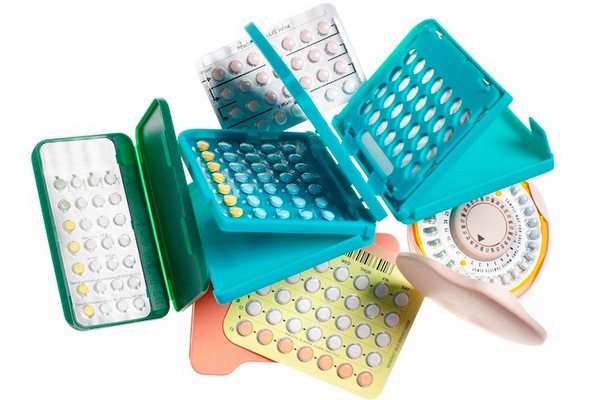
The action of the tablets is based on changes in the level of hormones in the blood. This prevents the follicle from maturing in the ovary and the release of the egg. Also, under the influence of these drugs, the structure of the layer of the uterus (endometrium), which is located closer to its cavity, changes, due to which the egg cannot attach to the wall of this organ.
A feature of postpartum hormonal contraceptives is that they must contain only the hormone progesterone, without estrogen. Then the drug will not harm breastfeeding.
When can you take birth control pills after giving birth?
Doctors allow starting birth control pills 4 weeks after birth for non-breastfeeding mothers, and at least 6 weeks for breastfeeding mothers.
How to take birth control pills after childbirth
Oral contraceptives must be taken strictly on schedule. The woman drinks them every day, almost at the same time. A difference of one hour is acceptable. The daily dose is one tablet.
Warning! Breaks are not allowed!
It is necessary to adhere to these rules, since to prevent pregnancy a constant increased amount of the hormone in the body must be maintained.
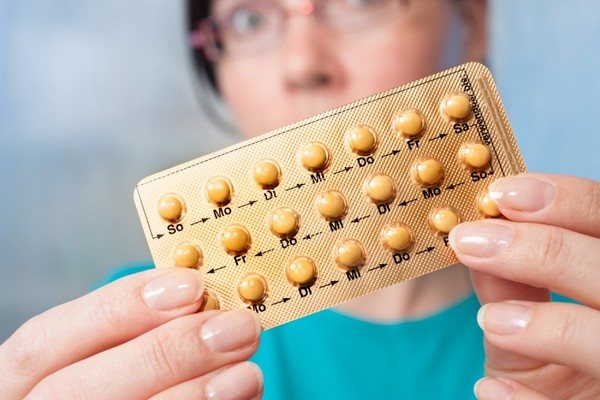
Which birth control pills are best to take after childbirth?
Among all the abundance of contraception, preference should be given to drugs called “mini-pills”. These medicines include:
- "Femulen";
- "Continuin";
- "Exluton";
- "Charozetta."
Their peculiarity is that they contain only a hormone called gestagen, or progesterone. It does not change the composition of breast milk, and is also not transmitted to the baby during breastfeeding. The amount of hormone in the “mini-pill” is less than in standard progestin tablets, which causes their lower effectiveness.
Advice! For the best effect, you should combine “mini-pills” and barrier methods of contraception.
“Mini-pills” are made specifically for mothers who are breastfeeding. They are also suitable for women during menopause (over 45 years of age). Taking the medicine by non-breastfeeding girls of reproductive age leads to severe menstrual irregularities.
Despite their high effectiveness, the use of oral contraceptives after childbirth has a number of disadvantages:
- do not provide protection against infectious diseases;
- the need to take pills strictly on schedule;
- may cause unwanted side reactions: nausea and vomiting;
- can affect the frequency and abundance of menstruation;
- Skipping even one dose of medication significantly reduces the effectiveness of the drug.
Intrauterine device
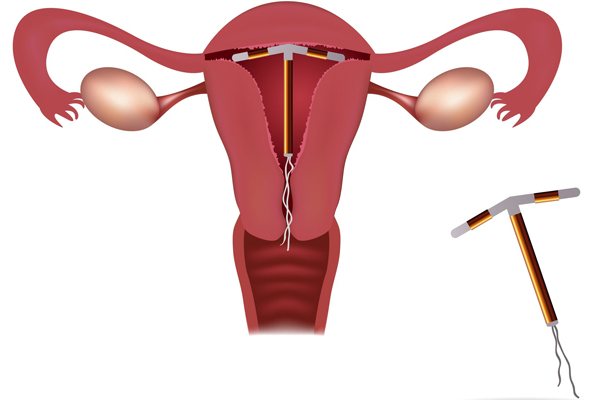
Another effective method of contraception is the intrauterine device (IUD). It does not affect the amount of progesterone in any way, and therefore does not cause the development of unpleasant side effects or distort the menstrual cycle.
If you had a natural birth without complications, you can insert the IUD after 6 weeks.
The main contraindication to inserting an IUD after childbirth is delivery by cesarean section. After this surgical intervention, a scar remains on the uterus. Constantly impacting it from the inside with a foreign object, such as an intrauterine device, can lead to rupture of this scar. The use of IUDs is also contraindicated in other pathological conditions:
- endometriosis – growth of the endometrium in places where it should not normally be;
- endometritis - inflammation of the inner lining of the uterine wall;
- severe heart and vascular diseases.
If a woman decides to use an IUD as a contraceptive after childbirth, its installation and removal should be entrusted to a gynecologist. You also need to go for a preventive examination twice a year, since wearing an IUD increases the risk of inflammation of the genital organs.
Barrier methods of contraception after childbirth
There are several barrier methods of contraception for women after childbirth:
- diaphragm;
- cap.
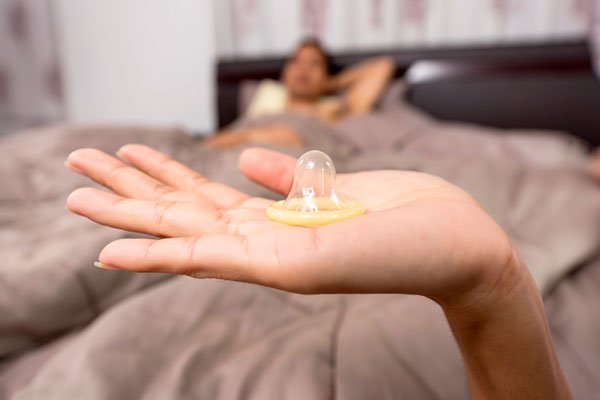
Installing a cap or diaphragm does not affect breastfeeding in any way. The peculiarity of contraception after childbirth using these methods is that a larger size should be chosen due to the expansion of the birth canal. For the first time, the installation of the diaphragm and cap should be carried out by a gynecologist. You can start using them 6 weeks after birth.
Chemical contraceptives
Spermicides are drugs that have the ability to destroy sperm. They also have activity against pathogens of infectious diseases. They are considered one of the least effective contraceptives in preventing pregnancy. Therefore, it is better to use them in combination with tablet drugs.
Injectable contraceptives

Injections are another form of contraception with gestagens, which are recommended for use after childbirth. This drug is called Depo-Provera. It is administered intramuscularly every two months. Just like taking pills, injections should be regular. This is the only way to achieve high efficiency of the method.
Injectable or tablet contraceptives, together with barrier methods, are recommended for use as contraception after cesarean section. These drugs do not irritate the uterus from the inside, and therefore cannot lead to its rupture.



